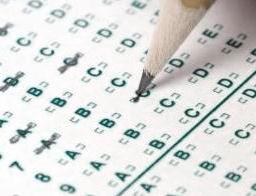Remedial courses are supposed to get under-prepared students ready for college-level work. Unfortunately, all the numbers indicate that too often these students hit a dead end and often never move into college-level work and drop out. Leaders of four
national higher-education groups said last month that there need to be sweeping changes in how such students are remediated.
The report, "Core Principles for Transforming Remedial Education: A Joint Statement" comes from Complete College America, the Charles A. Dana Center at the University of Texas at Austin, the Education Commission of the States, and Jobs for the Future and is based on studies by the Community College Research Center at Columbia University's Teachers College.
One of their recommendations is that more developmental students should be placed directly into full-credit college courses that are accompanied by services such as mandatory tutoring and facilitated computer labs.
They also report that there is skepticism from faculty members who would have to integrate the extra support into their classes. Their concern is that bypassing developmental courses will set up students for failure in courses that they are not prepared to take.
Another concern identified in the report is how students end up being placed in remedial courses. Very often the placement is based on a single standardized test. Having administered that test at a community college for several years, I know that students do no preparation for the test and often don't take it seriously. Though we know it is a "high-stakes" test, these new students don't understand what it will mean to their first year at a college.
Five of their core recommendations are:
1. Colleges shouldn't rely on a single test to place students in the appropriate classes.
2. Students who are significantly underprepared need accelerated paths to college-level work.
3. Enrollment in gateway college-level courses, with additional
academic support, should be the default placement for many more students.
4. The content of those courses should align with a broad category of majors, such as social sciences or human services, that students choose when they enroll in college.
5. Helping students complete gateway courses, the report says, is key to college completion.
The report says that less than 10% of students that take three or more semesters of remedial math end up completing the first-year college-level math course for which they were preparing. When it comes to English, the numbers are better but still poor with fewer than one in three of the students in three remedial courses will complete the college-level course that they were preparing to take.
 Ask professors what kind of students they want in their classes and you might hear attributes like initiative, persistence and leadership. How well are those attributes measured by admissions tests? Yeah, not so well.
Ask professors what kind of students they want in their classes and you might hear attributes like initiative, persistence and leadership. How well are those attributes measured by admissions tests? Yeah, not so well.